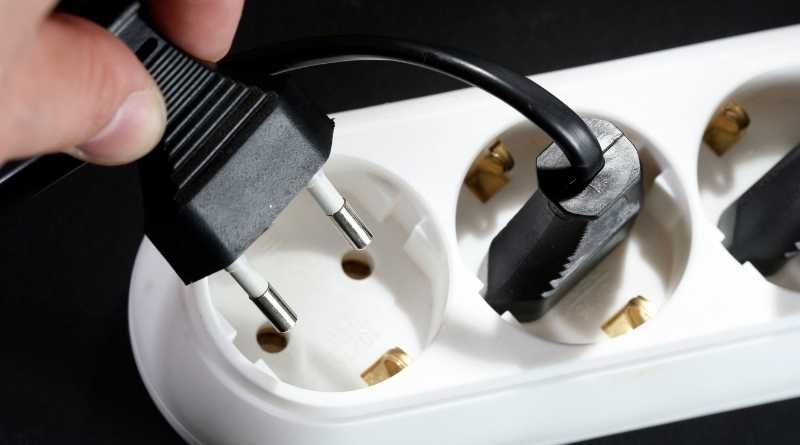Surge protectors are designed to help protect your valuable electronic equipment from damaging voltage and current spikes caused by things like lightning, faulty wiring, and malfunctions.
But, what if you plug in a surge protector, but it isn’t grounded? Will it still work?
Let’s find out!
A surge protector will work without a ground. However, they won’t provide the protection that you expect. The way surge protection works is by diverting excess power into a ground wire. Without it, your devices are not protected from power surges.
Do I Need A Grounded Circuit to Use A Surge Protector?
If the surge protector is being used to protect a grounded circuit, a grounded outlet must be used. You can not plug a surge protector into a non-grounded outlet and expect it to work properly as a whole. The only way to ensure that the surge protector will work properly is to make sure that all parts of your home’s electrical system are properly grounded and wired together.
A surge protector can be used on a bare circuit without a ground or with a ground. However, some surge protectors include a line transformer that requires a ground connection to work properly.
Can Surge Protectors Work Without The Grounding Pin?
Surge protectors are devices that are used to protect electronic devices from large surges in voltage, caused by lightning strikes, voltage spikes and other power disturbances. Surge protectors work by preventing damage to the device’s electronic components. However, some people believe that you don’t really need the ground pin.
While it is true that the ground pin is there to prevent electric shock, it is not required for a surge protector to work. There is no actual evidence that a surge protector can work without a ground pin, thus it is best to adhere to the instructions and use it.
Is It Safe To Use An Ungrounded Surge Protector?
Well, that really depends on the level of safety you desire.
If you are willing to endure a momentary disruption, which dissipates quickly and prevents your electronics from sustaining any damage, then using an ungrounded surge protector is probably safe for any application other than sensitive electronics. However, if you need a more reliable form of protection for your electronic devices, then choose a grounded surge protector.
Although a surge protector should be properly grounded to function properly, it is possible to use an ungrounded surge protector.
Installing an ungrounded surge protector is not recommended as it can result in voltage that could cause harm to the devices connected.
How To Know If Surge Protector Is Working?
Surge protectors can prevent the expensive damage that can be caused by surges in your electrical system—which occur whenever lightning strikes or a utility company turns on a large load, such as a factory.
But how can you tell if your surge protector is working?
You can just take a look at the indicator lights on the surge protector. When the light is green, that means that electricity is flowing through the surge protector.
When it goes to orange, that is an indication that there is a voltage leak from your electrical devices to the power socket, so you need to turn off your appliance on the surge protector.
Conclusion
The ground wire is very important in a surge protection system. Not only does it provide a safe path for electricity to get to the earth, but it also helps determine what is protected and what isn’t.
A quality surge protector will have a number of grounding points. Always check the documentation to see exactly which points are connected to the ground for your specific unit.
This is why it’s important to check your surge protector regularly – burnt outlets or melted cords can be signs that your surge protector is no longer providing the protection you need.
